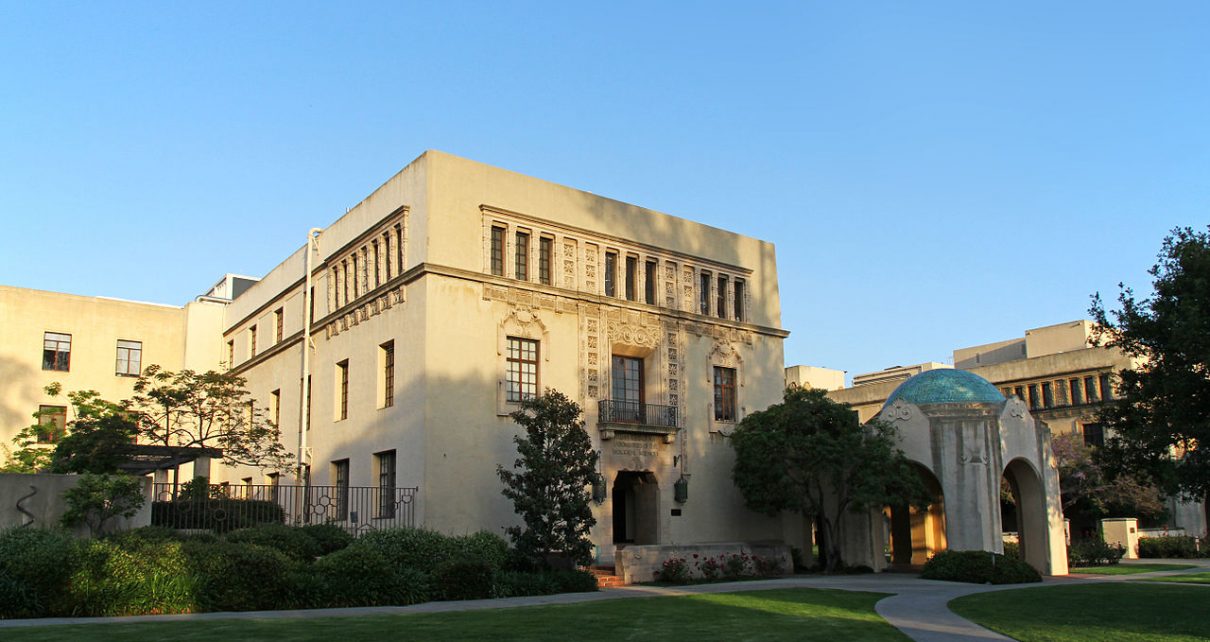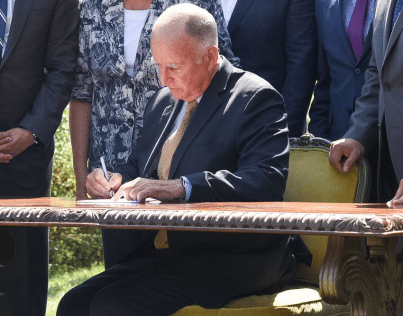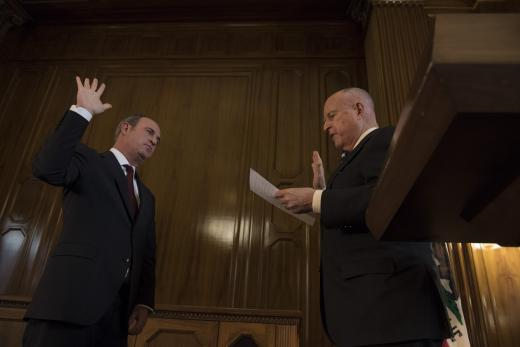
California Institute of Technology, Kerckhoff Laboratory of the Biological Sciences. (Photo: Wikipedia)
California Is the Land of Innovation – Now it’s Up to the Supreme Court to Keep It That Way
The fate of intellectual property protections is at stake leaving the entire California economy at risk
By Deborah Pauly, February 24, 2020 10:52 am
California is a land of innovation. We build, engineer and develop new technology constantly. By creating novel intellectual property, our businesses turn potential into reality. The Golden State files significantly more patents than any other state in the nation.
But now, the protections that undergird intellectual property (IP) are under threat, leaving the entire California economy is at risk.
Many of America’s biggest technology companies found their start in Silicon Valley, the hub of our state’s creative enterprise. There, under the vigilant protection of IP law, these Big Tech companies brought their revolutionary ideas to fruition, changing the technological landscape of the nation in the process. Now, at the pinnacle of their success, some of these very same businesses are looking to weaken the very IP protections that facilitated their ascent.
To avoid compensating other innovators, Big Tech is working hard to dilute the strength of intellectual property law, eroding our state’s proud legacy of innovation in the process.
For instance, take the most recent intellectual property lawsuit surrounding Apple and California Institute of Technology. Initially filed in 2016, the case centered around Apple’s illegal use of Broadcom Wi-Fi chips. The chips, used in millions of Apple products like iPhones and iPads, contained Caltech’s patent-protected data transmission technology.
Thankfully, last month, the California courts punished Apple’s assault on IP. In the biggest jury verdict of its kind, a Los Angeles jury awarded Caltech judgment in its case against Apple. The court ordered Apple to pay Caltech $837.8 million in damages for violating the university’s patent on Wi-Fi technology.
For Big Tech, the war has just begun.
Apple is vowing to appeal the CalTech decision, which will, at the very least, prolong justice for the California university. Worse, though, is what Google is doing in Google v. Oracle – a case the Supreme Court is scheduled to hear in March. If the search engine giant succeeds, the case could set precedent that erodes the strength of IP law altogether.
Not only could it lead to the courts overruling the Caltech decision, but it will also jeopardize the security of the tens of thousands of copyrights that make the California economy hum.
Following an unsuccessful licensing negotiation for California-based Oracle’s popular Java software, Google simply copied the relevant sections from Java’s copyright-protected code to use in its own mobile phone operating system. The trouble for the future of copyright law is that Google’s defense in its appeal case is “fair use” – a common defense to copyright that permits the limited use of material for “transformative” purposes like commentary, criticism or parody.
Java is software, and the 11,330 lines of code that Google copied verbatim formed an intricate, substantial portion of the program’s declarative code. Never before has something so complex been considered fair use. Google is effectively advocating that this singular copyright defense be extended far beyond its current limitations.
The Supreme Court ruling in the affirmative would allow not only Google, but Apple, Amazon and any other big company with enough money to lawyer up and claim “fair use” to directly rip off copyrighted material without consequence. This would mean that Caltech, as well as the thousands of California-based businesses that rely upon intellectual property protections, would have a harder time defending their IP from Big Tech poachers.
After all, if Java, with its immense inherent complexity and creativity, can’t be copyrightable, what hope would local innovators have in defending their creations against claims of fair use?
The fair use defense will become a scapegoat for Big Tech companies as they plunder intellectual property statewide. With the backing of a Supreme Court ruling, these Big Tech companies would have a concrete justification for their IP theft.
On this issue, the Supreme Court must not reverse more 230 years of U.S. copyright law. The ruling will affect not only the companies involved in the lawsuit, but the fate of intellectual property protections altogether. The Supreme Court Justices hold the future of innovation and the California economy in their hands.
- California Is the Land of Innovation – Now it’s Up to the Supreme Court to Keep It That Way - February 24, 2020
- The Insurance Lobby is Ruining the California Healthcare System - October 9, 2019




